
Carolyn Gramling is the Earth & Climate writer at Science News. Previously she worked at Science magazine for six years, both as a reporter covering paleontology and polar science and as the editor of the news in brief section. Before that she was a reporter and editor at EARTH magazine. She has bachelor’s degrees in Geology and European History and a Ph.D. in marine geochemistry from MIT and the Woods Hole Oceanographic Institution. She’s also a former Science News intern.

Trustworthy journalism comes at a price.
Scientists and journalists share a core belief in questioning, observing and verifying to reach the truth. Science News reports on crucial research and discovery across science disciplines. We need your financial support to make it happen – every contribution makes a difference.
All Stories by Carolyn Gramling
-
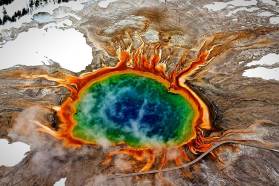 Earth
EarthNo, Yellowstone isn’t about to erupt, even after more magma was found
A new study offers the best views yet of what lurks beneath the Yellowstone supervolcano.
-
 Earth
EarthThe Hunga Tonga volcano eruption touched space and spawned a lightning blitz
The eruption of the Hunga Tonga-Hunga Ha’apai volcano in the Pacific Ocean earlier this year was one for the record books — in several surprising ways.
-
 Paleontology
PaleontologyWhy the sale of a T. rex fossil could be a big loss for science
At least half of the roughly 120 known T. rex fossils are owned privately and not available to the public. “Maximus” may join them.
-
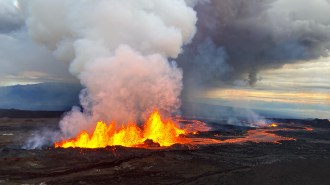 Earth
EarthHawaii’s Mauna Loa volcano is erupting. Here’s what you need to know
A geophysicist with the U.S. Geological Survey answers questions about the recent eruption of the world's largest active volcano.
-
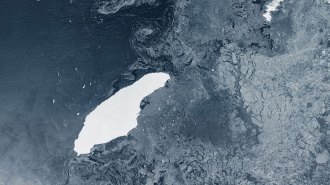 Climate
ClimateHere’s what happened to the Delaware-sized iceberg that broke off Antarctica
The powerful pull of currents in the Southern Ocean probably pulled apart the largest remnant of a massive iceberg that split off Antarctica in 2017.
-
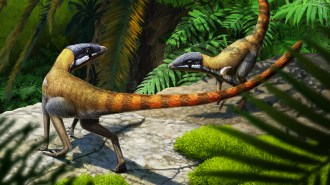 Paleontology
PaleontologyPterosaurs may have evolved from tiny, fast-running reptiles
A mysterious little ground-dwelling reptile unearthed in a Scottish sandstone over 100 years ago turns out to be part of a famous flying family.
-
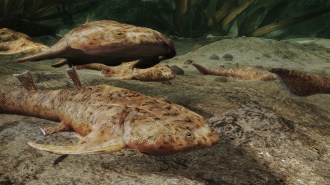 Paleontology
PaleontologyAncient fish fossils highlight the strangeness of our vertebrate ancestors
New fossils are revealing the earliest jawed vertebrates — a group that encompasses 99 percent of all living vertebrates on Earth, including humans.
-
 Earth
EarthIn 2021, a deadly volcano erupted with no warning. Here’s why
Before the Nyiragongo eruption, underground magma was already close to the surface and so didn’t trigger instruments that look for lava movement.
-
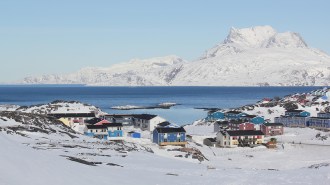 Earth
EarthThe Arctic is warming even faster than scientists realized
The Arctic isn’t just heating up two to three times as quickly as the rest of the planet. New analyses show that warming is almost four times as fast.
-
 Climate
ClimateHumans may not be able to handle as much heat as scientists thought
Humans’ capacity to endure heat stress may be lower than previously thought — bad news as climate change leads to more heat waves around the globe.
-
 Paleontology
PaleontologyMammal ancestors’ shrinking inner ears may reveal when warm-bloodedness arose
An abrupt shift in inner ear shape of mammal ancestors 233 million years ago, during a time of climate swings, points to evolution of warm-bloodedness.
-
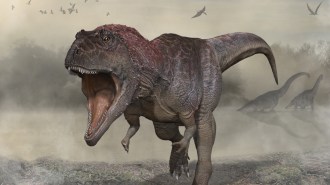 Paleontology
PaleontologyA newfound dinosaur had tiny arms before T. rex made them cool
A predecessor to Tyrannosaurus rex, Meraxes gigas had a giant head and puny but muscular arms, suggesting the limbs served some purpose.